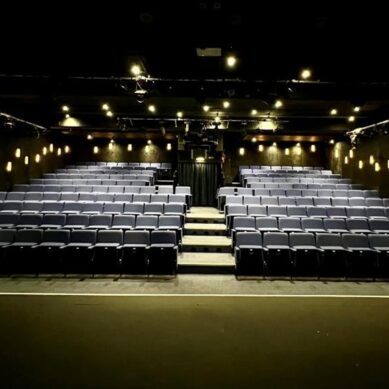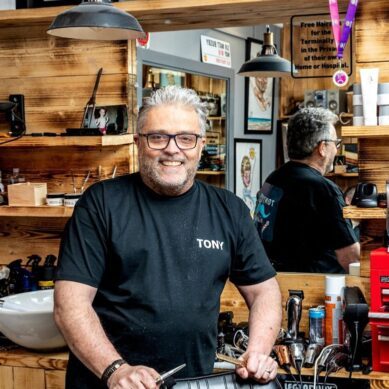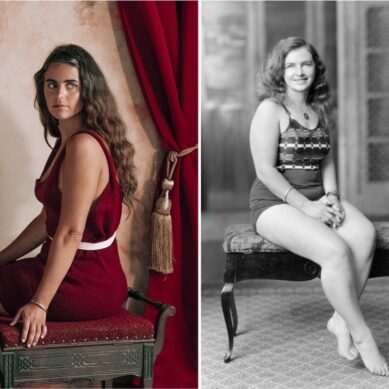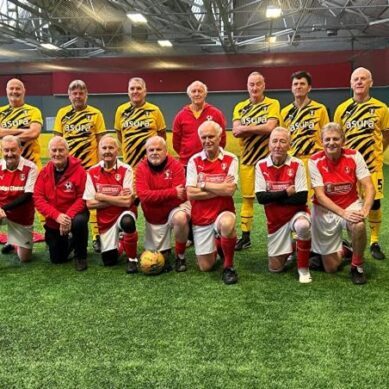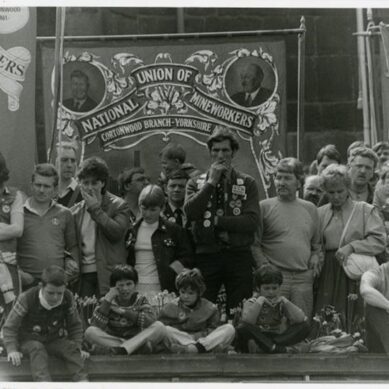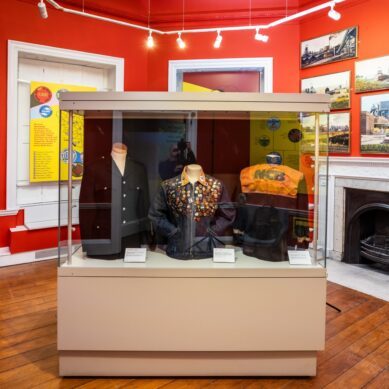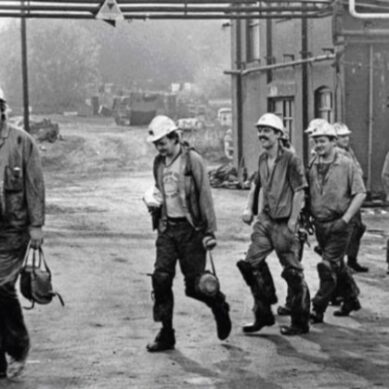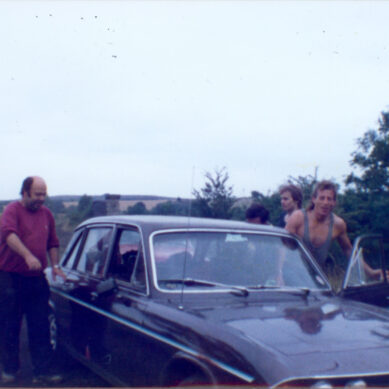Raising expectations and achievements beyond what anyone believed was possible. That has been the ethos of Paces for the last 25 years, during which it’s become a lifeline of support for families living with cerebral palsy and other motor or neurological disorders.
But over this past year, the Paces family has surpassed anything they ever anticipated thanks to their truly inspirational pupils and their gargantuan fundraising efforts.
The Paces name has been propelled into the limelight thanks to some shining superstars such as ‘Captain’ Tobias Weller, Lennie Street and Jack Mitchell. They are all exceptionally determined young people who face lots of challenges in life. Yet, they have all defied the odds and found strength in hard times to raise vast amounts of money for their school, as well as raise the profile of its services.
What is Paces?
Paces was established in 1997 by a small group of parents of children with cerebral palsy. Parents who had been told by medical professionals their child would likely never achieve many things in life, but who shared a view that their children deserved the chance to unlock their potential as any other non-disabled child would.
At the heart of Paces is a specialist school for children and young people aged three to 19 who have cerebral palsy or motor disorders. Their key principles to learning are built on the foundations of conductive education – a unique and effective holistic approach that combines education with movement.

Cerebral palsy (CP) is the collective name for conditions caused by a brain injury before, during or shortly after birth. It most commonly affects movement and muscle control and, while greatly varied, mobility limitations are common. Standard NHS physiotherapy and occupational therapy only goes so far; to lead truly independent and fulfilled lives, more hands-on assistance is needed.
What is Conductive Education and how does it benefit people with cerebral palsy?
With a focus on ability not disability, conductive education is a Hungarian concept that works on the connection between the body and the mind. The theory uses the body optimally to solve problems or overcome challenges using functional techniques and strategies.
But the results are astonishing. Paces promotes first and foremost independence. Pupils learn basic functional skills, such as sitting or standing, to improve their physical ability. The older children are encouraged to actively move around their classrooms as best they can without the use of wheelchairs or mobility aids when possible. It’s not unusual to see children army crawling into a room or rolling across the floor to get what they need.

This positive can-do attitude improves a child’s ability and readiness to learn all other aspects of the curriculum, as well as develop their social, cognitive, sensory and language skills.
Paces pupils’ philanthropic efforts
Without that self-belief, Paces’ pupil Tobias Weller may never have raised £150,000 for his school and Sheffield Children’s Hospital last year, preceding him winning the inaugural Young Unsung Hero Award at Sports Personality of the Year.

Tobias was inspired by the late Captain Sir Tom Moore to complete his own marathon challenge. The nine-year-old has cerebral palsy which leaves him unable to walk or stand unaided. But, during the various lockdowns in 2020, he completed not one, but two marathons as well as a virtual 480-mile bike ride on a purpose-built trike donated by Sheffield-based mobility aid company, Jiraffe.
He originally set a target of raising £500 which would be split between Paces – the school he’s attended since age three – and Sheffield Children’s Hospital. But word of his lockdown challenge soon spread and before long donations were coming in from across the country. After appearing on daytime TV, his Just Giving page jumped up £40,000 in 20 minutes.
The fundraising doesn’t stop there.

Fellow classmate, nine-year-old Lennie Street from Leeds, has raised almost £20,000 after his piano playing went viral. Lennie has CP and hydrocephalus (excess fluid on the brain) and cannot read, write, or hold a pen. Yet he’s taught himself to play the piano by ear. His musical challenge saw him set a goal of learning to play 100 songs to raise £750, but his quest was picked up by Missy Elliott, Jools Holland and Marcus Rashford which boosted donations. He’s taught himself to play everything from Beethoven to the Beatles and Justin Bieber.
Nineteen-year-old Jack Mitchell has quadriplegic CP which affects both his arms and legs; he is also non-verbal and uses an eye gaze speech device to communicate. But, during lockdown, he raised almost £3,000 for Paces after creating and selling wooden candle holders, clocks and cactus pots from his man shed at home.
A new home for Paces
All monies raised by Tobias, Lennie and Jack will go towards their appeal to move into a new and improved facility in 2022. The current building needs modernising and is too small for demand; Paces sadly has to turn many families away every year due to capacity. Moving the school would mean that Paces can support up to three times as many families. The facilities will include a multi-purpose hall, sensory room and a music and games room.
There are currently around 40 children who attend the school, based in High Green, Sheffield. Pupils come from all over Yorkshire and Derbyshire, with some commuting over two hours each day. But these are children who may have been told they’d never sit, stand or walk, so mileage is such a small sacrifice for parents and carers to make for the invaluable opportunities their children receive at Paces.
Some kids attend Paces full-time, while others combine it with mainstream schooling. There is also an outreach programme for non-school age children with development delays, so children have access to specialist support much earlier in childhood. The children are supported by a team of dedicated staff across both the school and charity.
The children are like one big family and are all proud of each other’s progress and achievements. They love nothing more than joining in with the weekly Selfie Saturday photo share on social media and their Facebook page is filled with photos of smiling, happy faces.
Support for adults with brain injuries
Along with the school, which welcomes children from early years through to secondary, the Paces charity also supports adults with brain injuries. Within five years of opening, Paces established their Conductive Living day service to help their school leavers transition into adulthood using the same CE principles as the school. In 2009, they then launched a sessional service for people with acquired brain injuries – those resulting from conditions like stroke, Parkinson’s and MS – to enable service users to relearn skills they may have lost as a result of their injury.
And this March, Paces was proud to have opened a brand-new adult facility at Smithy Wood Business Park in Chapeltown. It was officially opened by life-long Paces family members, Kirstin Hague and Sarah Perrin, whose parents were founders of Paces back in 1997.

The larger centre will now allow for three-times as many adults to be supported, as well as capacity to develop an interim young adults’ service for people aged between 18-25.
For both adult groups, there is a strong focus on independence, particularly in home and work life. This may include things like how to do laundry, order groceries or catch a bus. There is also time for enriching activities such as arts and crafts. The new centre will teach independence and help to promote life-skills such as cooking, baking, ordering the weekly shopping, preparing delicious recipes.
How can you support the charity?
Paces really is an extraordinary place where children and adults facing life-changing diagnoses can build relationships and achieve their potential. And while the amazing efforts by Captain Tobias, Lennie and Jack have set the bar for pupil’s dedication to their school, the charity couldn’t operate without continued support from their patrons, charity champions and donations from the public.
The charity team is always looking for people who are up for a challenge to join their regular #TeamPaces events from skydives to a mountain climb. But there are also plenty of ways you can show your support from the comfort of your sofa.
For more information about Paces and the brilliant work they do to support children and families living with cerebral palsy, see their website www.pacessheffield.org.uk
